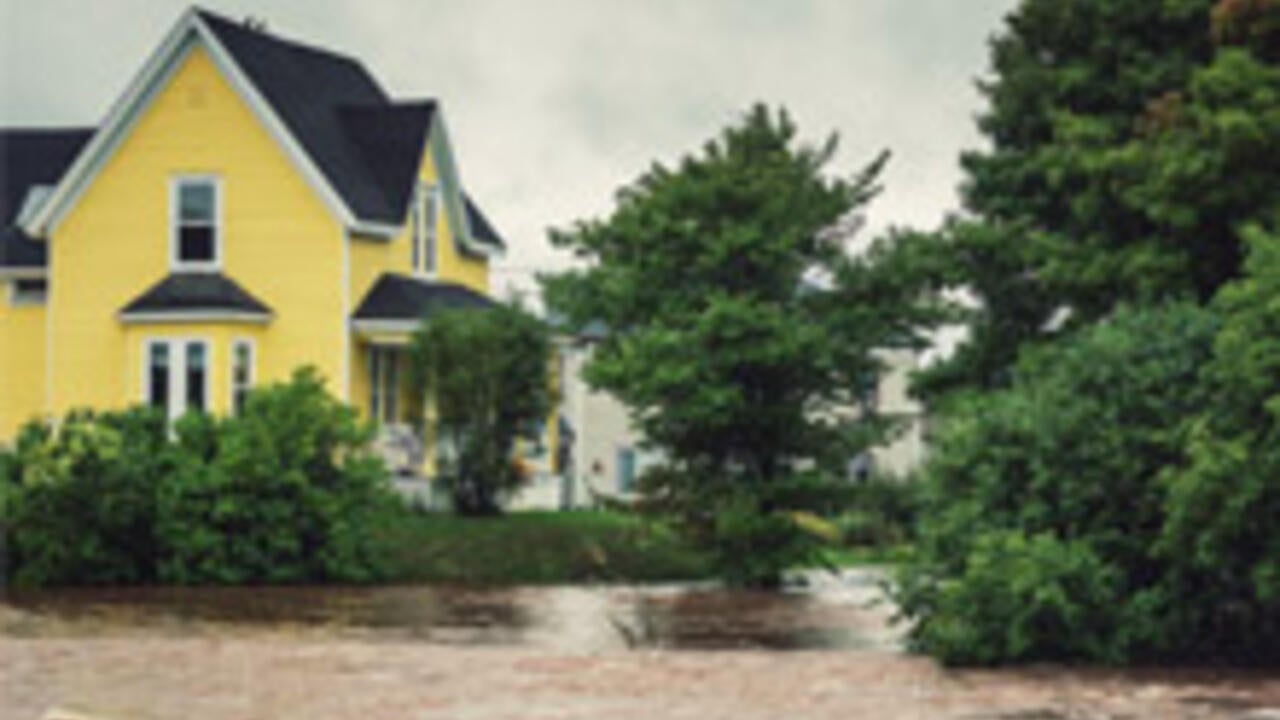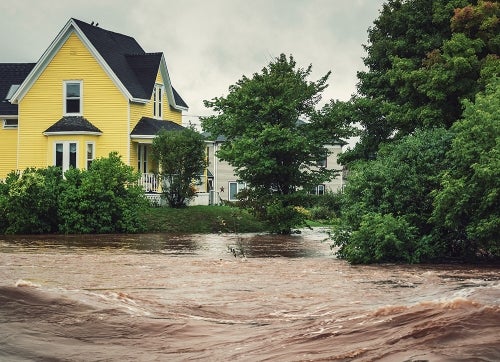
Research will help protect us from climate change storms
University of Waterloo connects with insurance industry to help communities prepare for the extreme weather of climate change

University of Waterloo connects with insurance industry to help communities prepare for the extreme weather of climate change
By Sam Toman Faculty of Environment
Photo credit: shaunl/iStock
The University of Waterloo is partnering with the insurance industry to find ways to protect Canadians from damage to their homes and communities brought on by the intense storms of climate change.
Thanks to a generous $4.25 million donation from Intact Financial Inc., The Intact Centre on Climate Adaptation (ICCA), will look at practical and cost-effective ways our communities can adapt to the realities of our changing climate.
While world leaders meet in Paris for the United Nations Climate Change Conference (COP21) to discuss mitigation strategies to eliminate or reduce greenhouse gas emissions - the newest research centre in the Faculty of Environment, the ICCA, will focus on adaptation solutions.
“Climate change adaptation is not something governments do alone,” says Daniel Scott, director of Waterloo’s Interdisciplinary Centre on Climate Change (IC3), and researcher in the ICCA. “Climate change adaptation is a societal enterprise that involves complex interactions of governments, businesses from all sectors of the economy, civil society, and the citizens of the world.”
While climate change mitigation will grab most of the headlines at COP21, adaptation deals with practical solutions that help communities cope with our already changing climate and extreme weather. It’s important to note that climate adaptation complements mitigation and any effective climate response has to consider both.
Climate adaptation research translates into real-world projects that need to be designed, built and maintained with a sense of urgency. One example would be upgrades to sewage and drainage systems to handle bigger and more frequent storms.
Imagine a massive snowstorm hits your community. Snow removal budgeting for the year is based on outdated data, and the city can’t clear every road before the morning commute. The number of car accidents spikes. Some accidents result in injury and increased healthcare costs. Insurance companies like Intact pay out thousands of dollars in claims. City governments come under fire for poor snow removal. The trauma and costs of not being prepared for extreme weather cascade to everyone.
In this particular case climate adaptation solutions could include:
Scott says universities have a duty to work collectively with citizens, businesses and governments to reduce the risk of climate change-related weather. “ICCA builds on almost a decade of collaboration with Intact on climate adaptation, and this generous gift will enable IC3 members to increase their engagement with industry and build nationally and world leading expertise on business led adaptation.
“Climate change needs expertise from across the academe; from atmospheric science to accounting, communications to engineering, geography to zoology,” says Scott. “It truly requires the A to Z of knowledge. No one has everything that is needed to deal with climate change adaptation. That’s why society really needs its universities to work on it and requires us to work differently.”
IC3 at the University of Waterloo does work differently. In all, IC3 has close 70 researchers representing nearly every Faculty on Waterloo’s campus, including five researchers from Applied Mathematics. IC3 also includes climate researchers from nearby Wilfrid Laurier University, as well as Environment Canada.
That’s why partnerships, like Waterloo’s on the Intact Centre on Climate Change, reveal an emerging dynamic between sectors that can act as a blueprint for the future of the climate fight.

Read more
An ambitious research collaboration with Habitat for Humanity is reimagining home ownership across Waterloo Region and Canada

Read more
Here are the people and events behind some of this year’s most compelling Waterloo stories

Read more
Researchers awarded funding to investigate ecology, climate change, repatriation, health and well-being through cultural and historical lens
The University of Waterloo acknowledges that much of our work takes place on the traditional territory of the Neutral, Anishinaabeg, and Haudenosaunee peoples. Our main campus is situated on the Haldimand Tract, the land granted to the Six Nations that includes six miles on each side of the Grand River. Our active work toward reconciliation takes place across our campuses through research, learning, teaching, and community building, and is co-ordinated within the Office of Indigenous Relations.